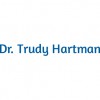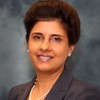Mountain View Psychiatry and TMS Inc. (MVPTMS) provides help in cases of depression, bipolar disorder, and chemical dependency. We apply therapies (group and individual), pharmacotherapy, and medication-free advanced Transcranial Magnetic Stimulation (TMS). We encourage our patients to follow a healthy and active lifestyle by participating in Yoga, Tai-Chi, and Feldenkrais.
Everyone at MVPTMS is dedicated to delivering the highest standard in therapy in an environment that is friendly and caring. Every person is different, so let us answer your questions by calling 650.969.6772.
Everyone at MVPTMS is dedicated to delivering the highest standard in therapy in an environment that is friendly and caring. Every person is different, so let us answer your questions by calling 650.969.6772.
Services
Antidepressant medications and psychotherapy are the first line treatments for major depression. In these instances when they fail, TMS might be used as an alternative treatment, or to augment antidepressant medications or psychotherapy. In our practice we offer all of them. In cases of major depression, Electro Convulsion Therapy (ECT) can be an alternative to TMS.
Non-pharmacological treatment of psychiatric problems become increasingly important and is one of the focus area in modern Brain research. Researchers are presently conducting a large number of clinical studies to evaluate who will benefit most from TMS therapy. For example, there is a lot of interest in evaluating whether TMS with antidepressant medications or other form of adjunct therapies is more effective than TMS alone.
Psychiatric illnesses and conditions are frequent and yet very misunderstood by the general public. They place a heavy burden on patients, their families, and caregivers. Since cognition is an independent realm in which disorder may occur, mental conditions are hard to visualize and to understand. Mental illnesses can be treated allowing patients to work and to function.
Talking therapies is an effective approach that can help you work out how to deal with negative thoughts and feelings and make positive changes. In MVPTMS we offer Cognitive Behavioral Therapy or Interpersonal Therapy applied within a group context and group process as a mechanism of change by developing, exploring, and examining interpersonal relationships.
Since many anxious patients have more than one anxiety disorder and may also suffer from depression, substance abuse, or other co-existing conditions, treatment is highly individualized. Obsessive-Compulsive Disorder (OCD):- unwanted thoughts/ repetitive ritualistic behavior that is impossible to control.
Reviews

Be the first to review Zahida Tayyib, MD.
Write a Review

